Oh God, what have I done? Bayer product and dead birds
rosysunnygirl
15 years ago
Featured Answer
Sort by:Oldest
Comments (44)
jerijen
15 years agolast modified: 9 years agoRelated Discussions
I have an Oh No!
Comments (10)I got home yesterday and the shredded leaves in my garden were smoking. It is close to the road so it could have been a cig that someone tossed. However I did add a bunch of fresh cut clover and wild onions recently, it was heating up and steaming. I wet it good and thought it was out. 2 or 3 hours later I saw smoke. I put my sprinkler out there and set the timer for 1 hour before going to bed. I got up this morning and it was smoking again! So I just turned on the sprinkler before leaving for work without the timer and left for work. I stopped by on my lunch break at 11:30 and turned off the sprinkler. I just got home and more smoke! Sprinkler is back on...... It kind of reminds me of coal mine fires they burn forever!...See MoreDead bird........what kind? :(
Comments (13)Ha! I thought it was a cardinal too! There was a dead snag in a tree top on my regular walk & I have thought it was an owl many times. I mean I know that it's there but I still check. Finally the snag blew down & it no longer looks like an owl. I kinda miss it!...See MoreBirds, Birds, Birds, oh my!
Comments (17)I'm glad your bird problem turned out to be seasonal but just in case you ever face this problem again (or any bird infestation problem) I thought it might be helpful to just mention a different angle on this. The problem is not that the birds are pooping (or whatever they're doing) in your pool. That is simply a symptom of your real problem: that your environment is attractive to birds. If you really want to keep birds from being destructive to your property you have to make it so that your land is a place they don't want to hang out on in the first place. There are a lot of different approaches to this but yes, stopping the food supply is one of them. Another would be the mylar balloons someone else mentioned up above. There are also specialized bird scare balloons with 'eyes' that follow the birds wherever they fly as well as holographic tape. These incorporate movement so they are usually more affective than static decoys. There are other senses to attack as well: taste/smell, touch, and hearing. Birds hate methyl anthranilate (a chemical derived from concord grapes that has long been used for grape flavoring)--it gives them a similar sensation to what we feel when we encounter bleach. This comes in commercially available sprays. Also, there are sticky gels, netting, or spike strips that keep birds from roosting on certain surfaces. Lastly, there are sound devices that utilize recordings of predators/distress calls that scare birds away. For a partially or fully enclosed area you could use an ultrasonic device as well (one that can't be heard by humans but is annoying to birds and bats). Make sure that you switch up whatever you use from time to time. If you use balloons, move the location (but always keep it near where the birds are nesting). If you're using a sound device change the interval between effects, try to randomize the effects being used. Also, using the products together in a synergistic way will create a more effective and longer-lasting reaction. I'm glad to hear that no one has mentioned killing or injuring the birds...don't do that. As mentioned before that would be reacting to the symptoms rather than truly solving the problem. Furthermore, it would be very easy to accidentally tamper with one of the MANY birds protected by the Migratory Bird Act of 1918 (and then you'd be in big trouble). Just a side note: be careful when cleaning up the bird poop. Birds can transmit over 60 diseases to humans. Some of them are fatal. Bird dropping particles can be unknowingly inhaled and lead to serious health problems. Good luck in your future bird encounters! Here is a link that might be useful: click for examples, case studies and FAQs about bird pest control...See MoreWhat should I have done? I was only 18 when I got married.
Comments (47)I second what mizscarlett said. PTSD or even TSD is a very real thing that happens to many people, not just soldiers. Arcy- I understand why you wrote what you did, it is the common stance of the general public to abused and battered persons; I used to feel much the same. BUT....unless you have lived through it yourself and had the same crushing emotions, guilt, worthlessness and self loathing that these people have experienced from years of emotional abuse, you really are in no place to judge. It is easy to view as an outsider and say, "you should have just left", it is FAR more difficult to do when you've been, slowly over time, made to live in fear for your life and the lives of those you love or been made to believe that you are, in fact, worthless. The worst damage people like OPs husband do isn't physical, it's emotional and mental. Her mother was willing to pay for the divorce but she was so worried for her mother's safety from this lunatic that she was willing to endure additional abuse to keep her mother safe. You berating her for something she already regrets is simply blaming the victim and encourages other people to NOT come forward. Many people who are abused (not saying this is necessarily the OPs stance) state that their abuser is quite charming at first, a "catch". Slowly, over time the verbal and emotional abuse escalates but they still say, "s/he's so great, and they've never hurt me!". Then the first time comes and they are physically abused. They are so shocked that it happened and "it's never happened before" that they write it off. It happens again, a few months go by and it happens again...and again....and again. At this point it is happening at an alarming frequency but by this point, the battered person is so broken, so ashamed at not recognizing what was initially happening, that they stay silent. The victim blames themself. THEN, in worst case scenarios, they begin to actually believe what the abuser says. They believe they deserve this. They believe they messed up, believe they are worthless, believe they are at fault. Frankly, as much as I want to judge and blame someone for their past mistakes, I can NOT sit by and blame a battered person for their poor decisions regarding their abuser. It's not right and it's not fair. msgenie- you've been given some great advice already. The only thing I can add to it is that you've already given him power and control over 50 years of your life. He is gone now and you can finally live. Try to NOT let his ghost take any more of your life from you. You only get one life, one chance at this big game; make it count. Regret nothing, learn from it....See Morejimska
15 years agolast modified: 9 years agoanntn6b
15 years agolast modified: 9 years agojerijen
15 years agolast modified: 9 years agoenjoy
15 years agolast modified: 9 years agobuford
15 years agolast modified: 9 years agoramblinrosez7b
15 years agolast modified: 9 years agoalisande
15 years agolast modified: 9 years agotaoseeker
15 years agolast modified: 9 years agomexicanhat
15 years agolast modified: 9 years agorosysunnygirl
15 years agolast modified: 9 years agoZyperiris
15 years agolast modified: 9 years agotaoseeker
15 years agolast modified: 9 years agokittymoonbeam
15 years agolast modified: 9 years agopatricianat
15 years agolast modified: 9 years agobuford
15 years agolast modified: 9 years agogreenhaven
15 years agolast modified: 9 years agomexicanhat
15 years agolast modified: 9 years agorosysunnygirl
15 years agolast modified: 9 years agorosysunnygirl
15 years agolast modified: 9 years agocollinw
15 years agolast modified: 9 years agojoanne_zone6_ma
15 years agolast modified: 9 years agomexicanhat
15 years agolast modified: 9 years agobuford
15 years agolast modified: 9 years agoMaryl (Okla. Zone 7a)
15 years agolast modified: 9 years agopatricianat
15 years agolast modified: 9 years agocactusjoe1
15 years agolast modified: 9 years agomike_rivers
15 years agolast modified: 9 years agojerijen
15 years agolast modified: 9 years agoaegis1000
15 years agolast modified: 9 years agomichaelalreadytaken
15 years agolast modified: 9 years agorosysunnygirl
15 years agolast modified: 9 years agomike_rivers
15 years agolast modified: 9 years agoMaryl (Okla. Zone 7a)
15 years agolast modified: 9 years agomichaelalreadytaken
15 years agolast modified: 9 years agomike_rivers
15 years agolast modified: 9 years agobuford
15 years agolast modified: 9 years agoMolineux
15 years agolast modified: 9 years agojoanne_zone6_ma
15 years agolast modified: 9 years agohyta
15 years agolast modified: 9 years agorosysunnygirl
15 years agolast modified: 9 years agovicki_jessica
15 years agolast modified: 9 years agoJenny Smyth
5 years ago
Related Stories

FUN HOUZZHow to Survive an Epidemic of Walking Dead
Tips to use around the house and garden to prep for the zombie apocalypse
Full Story
MOST POPULAR15 Remodeling ‘Uh-Oh’ Moments to Learn From
The road to successful design is paved with disaster stories. What’s yours?
Full Story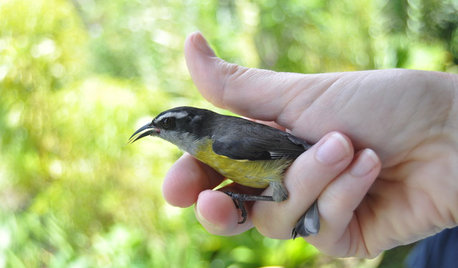
GARDENING FOR BUTTERFLIESBring on the Birds: Natural Habitat Ideas for Gardens of All Sizes
Provide nesting, watering and perching spots inspired by the Costa Rican jungle and watch the birds flock on over
Full Story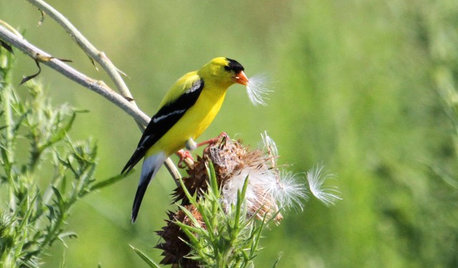
GARDENING FOR BIRDSWild Birds Transform a Woman’s Garden and Life
How Sharon Sorenson created a wildlife haven and became the Bird Lady of Southern Indiana
Full Story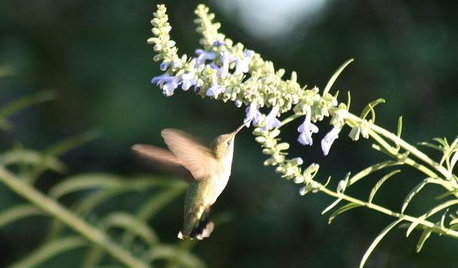
GARDENING FOR BUTTERFLIESA Quick-Start Guide to Bird-Watching for Fun and Learning
Set out some seed and grab your field guide. Bird-watching is an easy, entertaining and educational activity for the whole family
Full Story
COMMUNITYGet a Bird's-Eye View of America's Housing Patterns
See the big picture of how suburban developments are changing the country's landscape, with aerial photos and ideas for the future
Full Story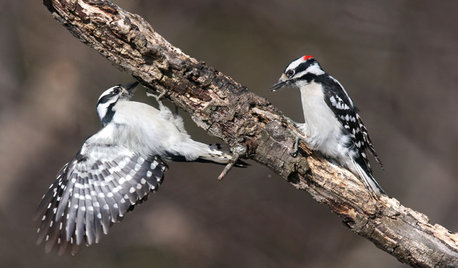
GARDENING FOR BIRDSBackyard Birds: How to Identify Two Common Woodpeckers
Downy and hairy woodpeckers have similar coloration and behavior. But there are two big differences that separate them
Full Story
SHOP HOUZZHouzz Products: Create a Cat Heaven at Home
Show kitty you care and keep your style too with fun and cozy cat beds, perches, trees and decor
Full Story
WINTER GARDENING6 Reasons I’m Not Looking Forward to Spring
Not kicking up your heels anticipating rushes of spring color and garden catalogs? You’re not alone
Full Story
GARDENING FOR BUTTERFLIESGardening for the Bees, and Why It’s a Good Thing
When you discover how hard bees work for our food supply, you may never garden without them in mind again
Full Story


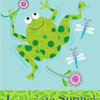
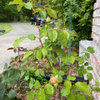
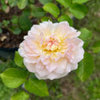
rosysunnygirlOriginal Author